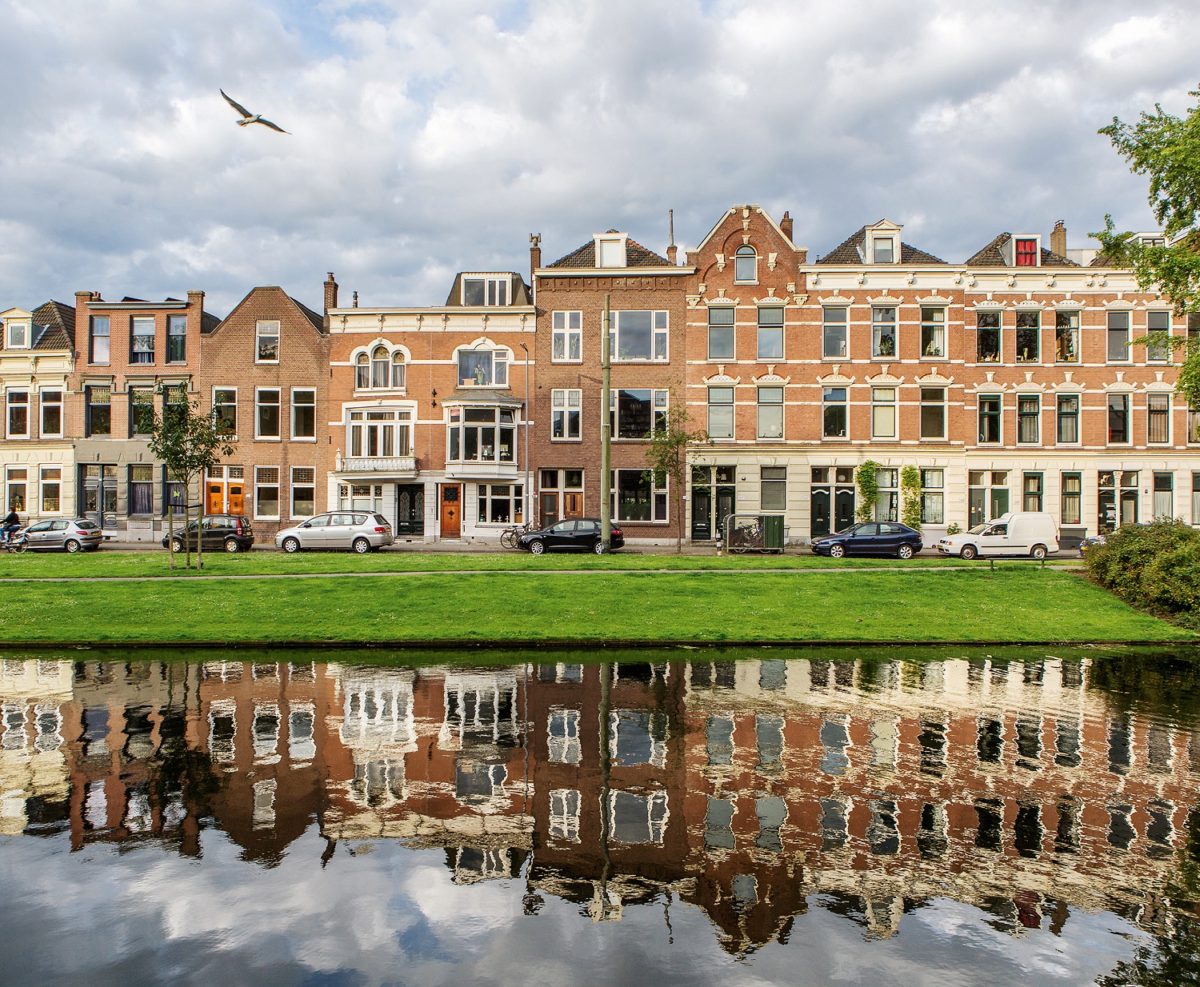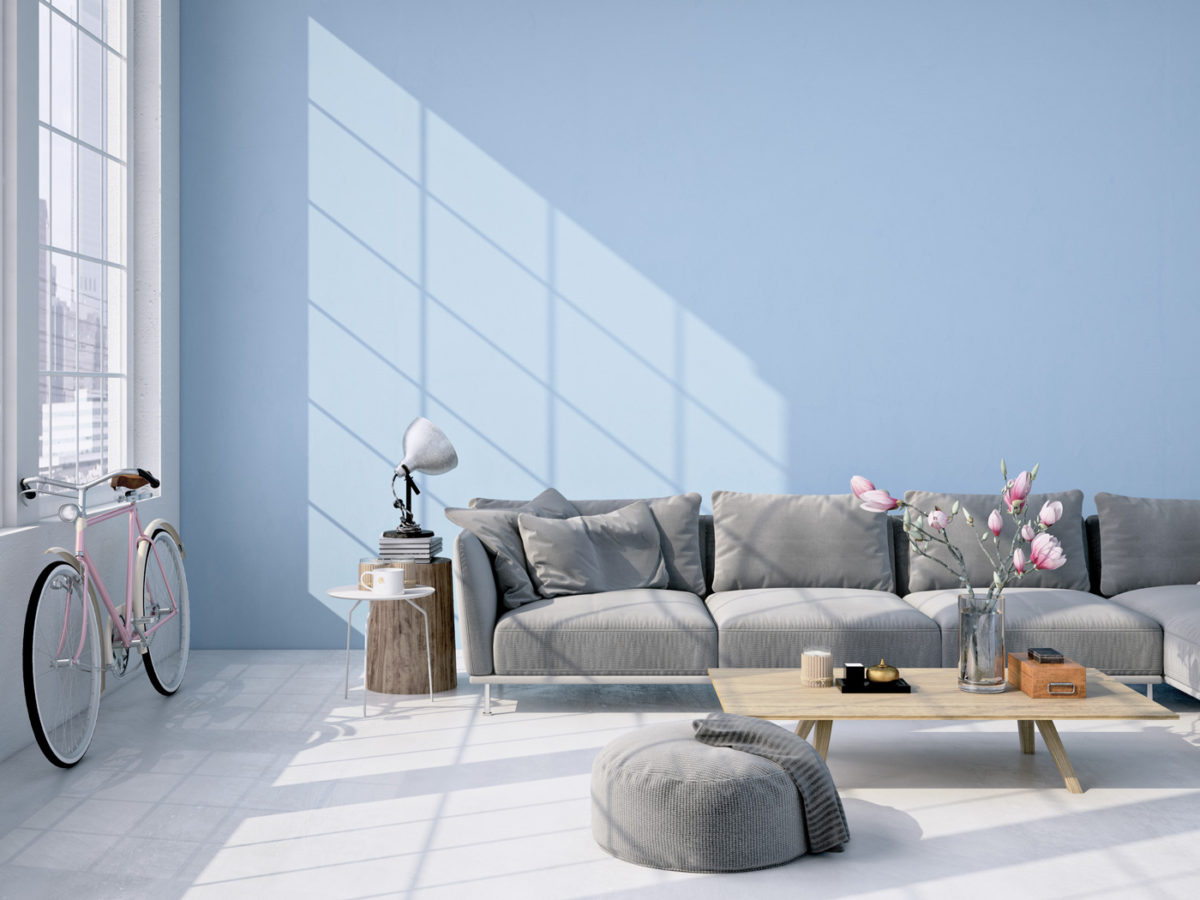Before you begin the house hunt, there are a few important things you should know about renting in the Netherlands. It is easy for expats to get confused by the different types of rental properties that exist in Holland. Complications related to housing contracts are common as well. In order to avoid any unpleasant surprises, keep reading! This page will cover the different types of contracts you can chooses from, and explain how they should be arranged and and terminated.
You can find further, more detailed information on this topic in our article on The Rules of Renting in NL.
Types of Rental Property
There are three different types of place to rent in the Netherlands. Your options are:
Unfurnished = Ongemeubileerd
- This kind of place will come with the absolute bare essentials
- It will be virtually empty
- There will usually be no carpeting
- Often there will be no curtains
- You may be provided with a few appliances and utilities, but this is not guaranteed
- You must do all the work to make this type of rental house into your home!
Semi-furnished = Gestoffeerd
- A semi-furnished residence contains some furnishings
- It will probably be carpeted
- It may have a few appliances
- Utility inclusion or exclusion depends on the landlord
Furnished = Gemeubileerd
- This type of property should come completely ready to move into
- It will contain: furniture, appliances, curtains, light fixtures, carpets, cutlery and dishes, television and stereo equipment
- There should be kitchen appliances in a furnished property
- These kitchen should at least have: a microwave, a dishwasher and a refrigerator
- Sometimes even bed linens, blankets or down feather beds will be included
- Utilities will usually be included in the price of a furnished apartment
 Tip
Tip
- Each rental agreement will be different
- So, it is crucial that you ask your landlord for a complete list of what is included before you move in
- Ask for a complete inventory list before agreeing to anything as well
- If anything is missing, negotiate with your landlord before you sign the lease
The Rental Contract
Many rental contracts have been specially designed to meet the needs of expatriates, and include an English translation.
A rental contract usually covers the following:
- The rent. Generally, the rent will be payable one month in advance
- The deposit. Usually the deposit will be between one and three months rent
- An annual adjustment of the rent. This will be based on increases in the cost of living. The Central Bureau of Statistics (CBS) calculates this
- User’s costs. These will include things like garden maintenance, municipal levies and utilities
- A Diplomatic clause
- A Brokerage fee
- A clause on minor repairs
- A clause stating that the lessee is responsible for the yearly cleaning of the central heating system, water boilers, chimneys, gutters and drain pipes
- A clause stating that the tenant is obliged to return the property to the landlord, at the end of the rental period, in the same condition they first rented it out in. That is, with the exception of normal wear and tear. If this condition is not met, the tenant will have to forfeit (a part of) his or her deposit
 Tip
Tip
- We strongly advise you to conduct a careful walk-through of any house or apartment you plan to rent
- Take note of any damages and areas in need of improvement
- Before you sign along that dotted line, determine who will be responsible for arranging and paying for the repairs
- It is so important to be clear about these things from the off-set!
- By doing this you will avoid conflict during your tenancy, and unnecessary complications when it comes to an end
Checking In
Here is what you should know about checking into your new property in the Netherlands:
- The contracts will be signed by tenants and landlord
- The rent and deposit will be paid to the agent
- The lessee will be handed the keys to the property
- Usually, the lessee will be checked in by the owner, or his representative
- The owner’s own agent may well be there to assist him or her
- A checklist will be filled out
- It will cover the condition of the house, furniture, fixtures and fittings
- It should also log the condition of the exterior and garden (if applicable)
- The inventory will be referred to at the check in as well
- The house will be totally spotless, right down to the insides of the kitchen and bathroom cabinets
- The inspection report will be signed by all parties involved
- The inventory list will be signed by all parties involved
If any of these steps are not taken, ask your landlord about it! This is how a textbook check in should go.
Terminating the Rental Contract
There is an etiquette to terminating a rental contract in the Netherlands as well. Here is what you need to know:
Silent continuance of the contract
Beware!
- If you want to terminate your contract after the initial year-long rental period you must stipulate this writing
- Failing to do so will cause the contract to undergo a ‘silent continuance’, or ‘stilzwijgende verlenging’
- This means that you will be liable for paying a new year of rental fees!
- If you move out anyway, the best possible outcome you can expect is that you will lose your entire deposit
Month-to-month continuation of the contract
- If you would like to continue your lease on a month-to-month basis, after the initial one-year period, this can be negotiated
- Ask your landlord if he or she is willing to arrange this with you
- You may also choose to continue your rental contract for a longer period of time
- Either agreement should be confirmed in writing
Terminating the rental contract prematurely
- You could be sent to another location or country for work, before your rental contract has come to its end
- Equally, the owner of your rented property might want to move back into it earlier than planned
- In either situation, one of you will have to terminate the rental contract before the agreed term is over
- This is why it is so important to include a diplomatic clause in your rental contract
- This clause will give both you, and the owner, the option to terminate the contract early
- You can both agree on a notification term in advance
General rules
It does not matter what kind of contract you have or when and how you would like to terminate it. You must always inform your landlord about the date you would like it to end, well in advance
- Let the landlord know when you will be physically vacating the property as well
- All these arrangements must be formalized via registered letter
- Depending on your rental contract, a notice period should be given before the expiration of the tenancy. It should be:
a) At least one calendar month long. This will protect the landlord/owner if you decide to terminate the contract
b) At least three months, plus one month for every year the property has been rented. This will protect you, if the lessor terminates the contract
c) The period should never be more than six months long
Checking Out
This is how your check-out should go:
- A check-out will be completed with all parties present
- Ideally, the check-out should take place on the last day of the lease period
- The inventory, and the condition of the property, will be checked
- They will be examined against the original checklist, made when the lease began
- Hopefully, the state of the property will be deemed satisfactory, and all bills in connection with the property will have been paid
- If this is the case, then the deposit will be paid back within three months of the check-out date
- If necessary, the costs of restoring the rental property will be deducted from the deposit
 Useful links
Useful links
- Consumentenbond: Everything you need to know about existing in consumer society
- The Access Guide to Housing in the Netherlands
- Dutch Association for Real estate Brokers
- Dutch Housing Association
- Find your ideal rental property:
www.funda.nl
www.jaap.nl
www.pararius.com
www.zah.nl
www.iamexpat.nl
www.housingtarget.com


 Side Note
Side Note
 Recommended reading
Recommended reading